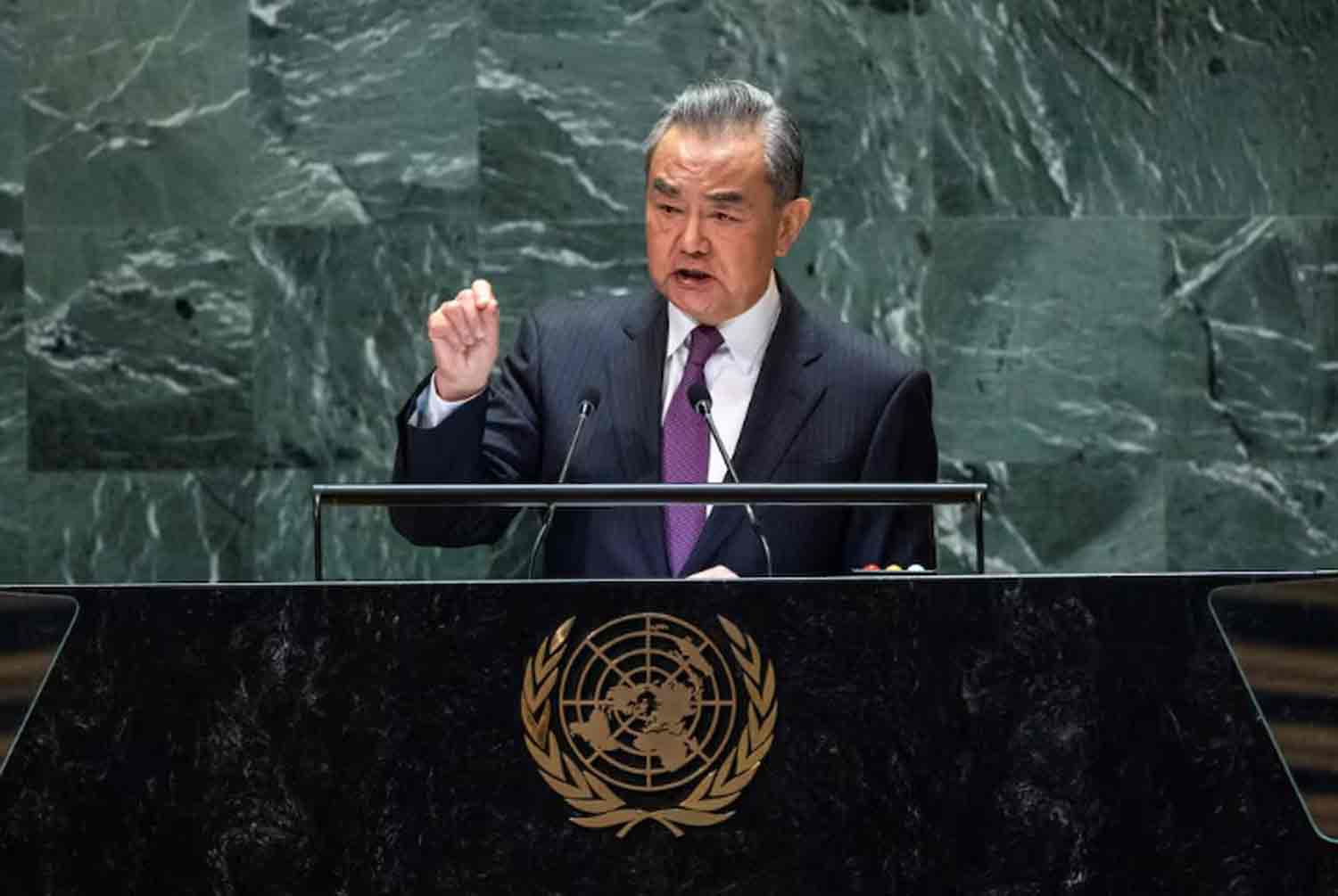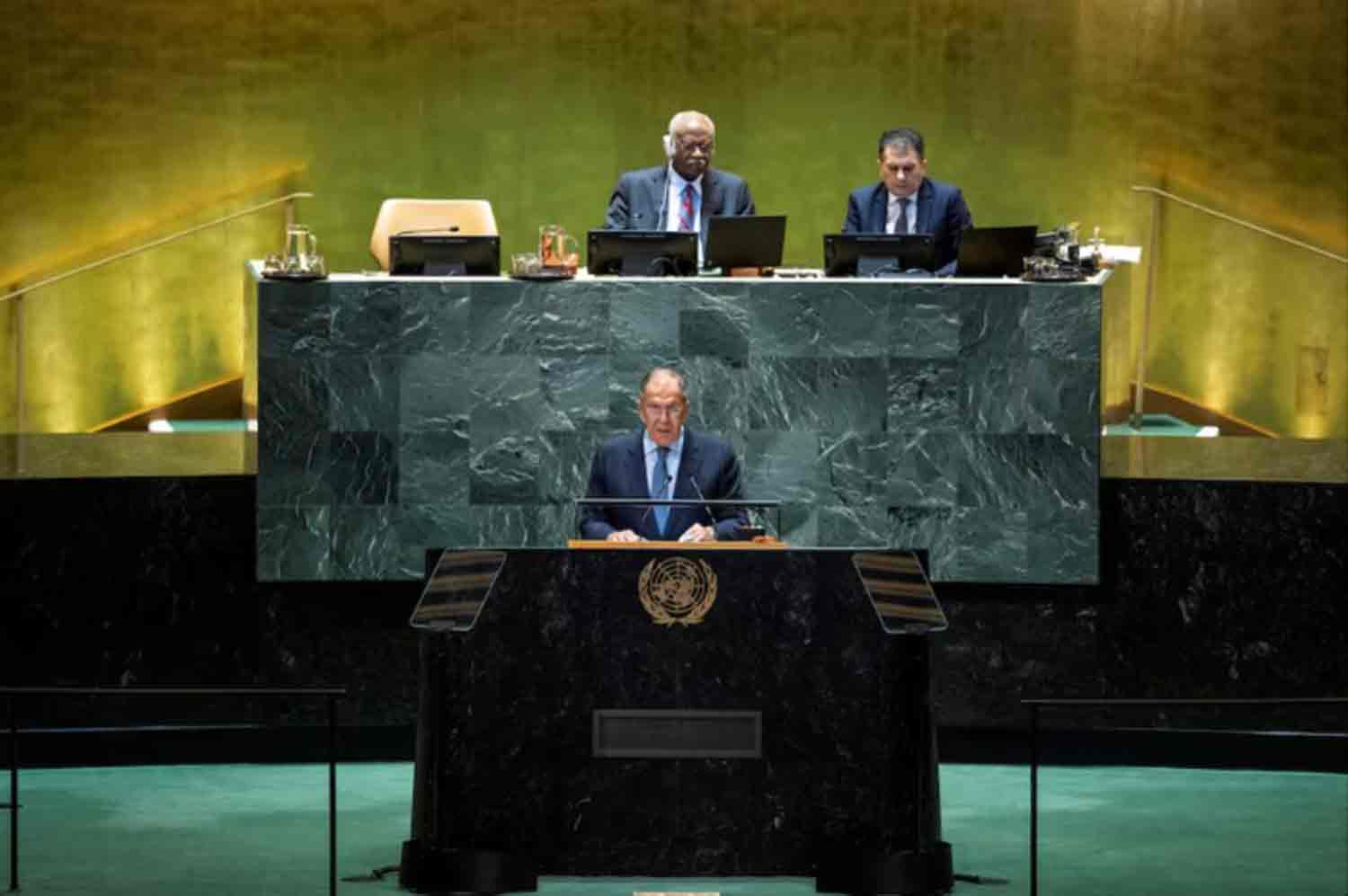Chinese Foreign Minister Wang Yi aimed to enhance his nation’s image as a global peacemaker during the United Nations General Assembly on Saturday. He called for an end to hostilities in the Middle East and highlighted Beijing’s diplomatic initiatives regarding Russia’s conflict in Ukraine.
Wang’s remarks followed Israel’s airstrike in Beirut that killed the leader of Hezbollah, an Iran-aligned group, escalating concerns about a broader regional conflict alongside the ongoing violence between Israel and Hamas in Gaza, which has persisted for nearly a year.
“The issue of Palestine represents a profound wound to human conscience. The conflict in Gaza continues to escalate, resulting in increasing casualties daily. Renewed fighting in Lebanon is also a concern, but power cannot substitute for justice,” Wang stated.
He emphasized the urgent need for a comprehensive ceasefire, asserting that the path to resolution lies in the establishment of a two-state solution. As the world’s second-largest economy, China has recently intensified its engagement in various global crises, positioning itself as a competitor to Washington’s longstanding role as a mediator.
In July, discussions were held in Beijing involving Palestinian factions, including Hamas and Fatah. President Xi Jinping played a pivotal role in facilitating a March 2023 agreement that reconciled a diplomatic divide between Saudi Arabia and Iran, effectively sidelining the United States.
“Peace is the most valuable asset in our world today,” Wang stated at the United Nations. “For the sake of peace, even a glimmer of hope is sufficient to warrant perseverance. Every small opportunity merits a tremendous effort.”
China’s most notable initiative for peace is its proposal for negotiations aimed at resolving the ongoing conflict in Ukraine. As Russia’s invasion enters its third year, the parties involved remain significantly divided regarding a potential resolution.
In collaboration with Brazil, China has suggested new discussions that would include both Kyiv and Moscow, and this week garnered support from countries in the Global South for this initiative. During the U.N. General Assembly on Wednesday, Ukrainian President Volodymyr Zelenskiy rejected the proposals from China and Brazil, questioning their motives for offering an alternative to his peace plan and cautioning, “You will not enhance your influence at Ukraine’s expense.”
China is dedicated to taking a positive approach by engaging in shuttle diplomacy and facilitating peace discussions, rather than exacerbating tensions or leveraging the situation for its own interests, Wang stated.
This week, Russian President Vladimir Putin mentioned that China and Brazil could serve as mediators in potential peace negotiations.
U.S. Secretary of State Antony Blinken remarked on Friday that China’s efforts to promote peace regarding Ukraine, while simultaneously assisting Moscow in the production of missiles, rockets, armored vehicles, and munitions, presents a contradictory stance.
Despite ongoing global peace initiatives, China remains embroiled in maritime conflicts with several neighboring countries, which are increasingly wary of China’s assertive actions.
President Xi has asserted that China’s “reunification” with Taiwan is unavoidable, claiming that China alone holds sovereignty and jurisdiction over the Taiwan Strait, which is part of the South China Sea.
Both the United States and Taiwan maintain that the strait, a crucial trade route for approximately half of the world’s container ships, should be regarded as an international waterway.
“The complete reunification of China will be realized,” Wang declared to the assembly. “Taiwan will ultimately return to the embrace of the motherland.”
Discover more from Defence Talks | Defense News Hub, Military Updates, Security Insights
Subscribe to get the latest posts sent to your email.





